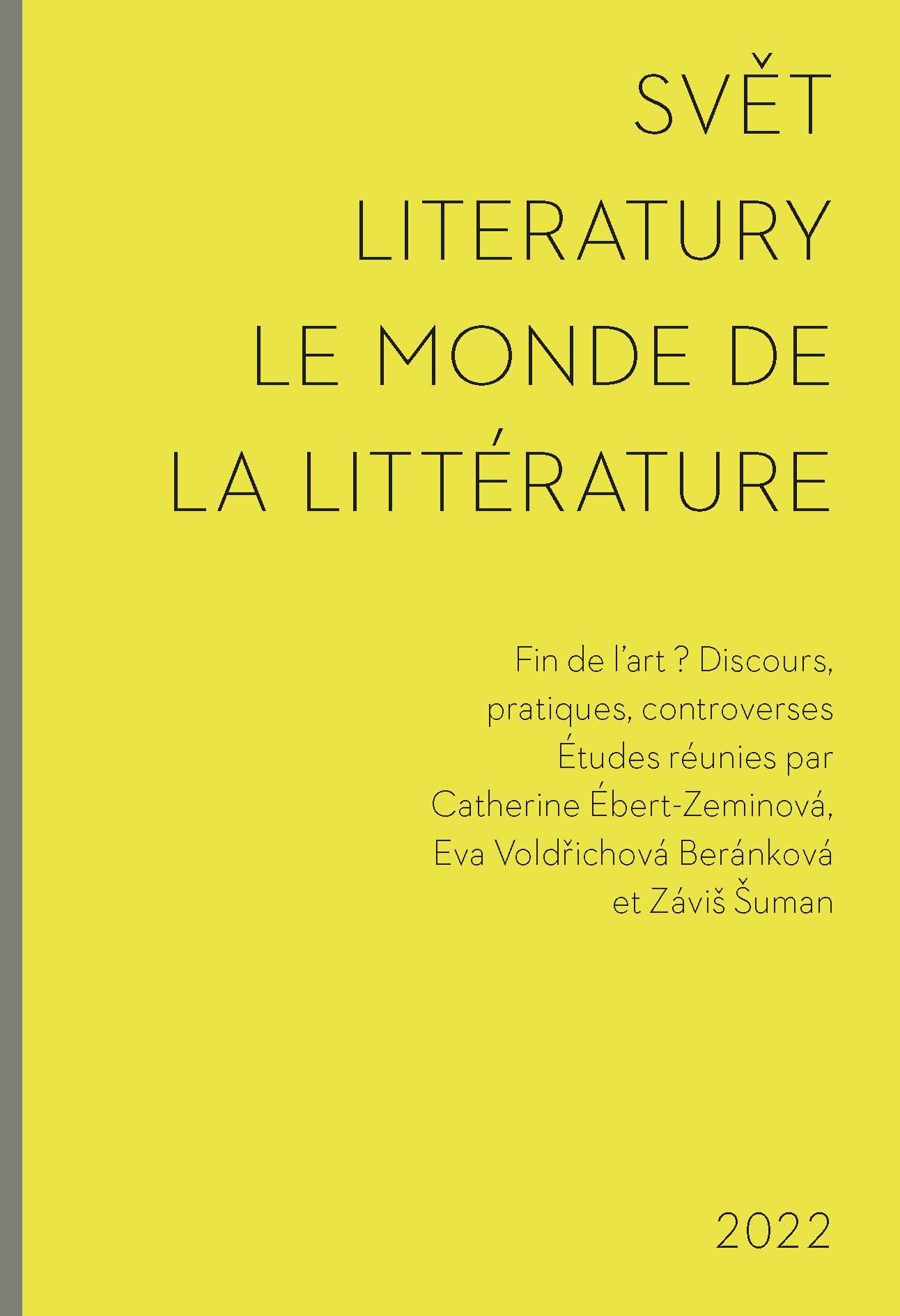Fins de l’art :
Ends of Art:
Hegel’s Reception in 19th-Century French Literature
Author(s): Alain Patrick OlivierSubject(s): Philosophy, Studies of Literature, Theory of Literature
Published by: Univerzita Karlova v Praze - Filozofická fakulta, Vydavatelství
Keywords: Aesthetics; French Literature; German Philosophy; French Philosophy; End of Art; 19th Century; France; Germany; Charles Baudelaire; Victor Cousin; Gustave Flaubert; Théophile Gautier; Georg Wilhelm Fr
Summary/Abstract: In a period of global pandemic and confinement to our homes, the end of art is not only a philosophical hypothesis, it is a fact of society. We have experienced that modern societies, those that were able to make art an absolute at one point in their history, no longer need the arts, or the physical presence of artists and spectators, or have considered them inessential, and therefore contingent. Is this what G. W. F. Hegel prophesied with his thesis of the end of art? In this paper I aim to clarify this by referring to the sources of Hegel’s lectures and by examining the reception by nineteenth-century French writers. 1) First, I give a reminder of the different ways in which Hegel’s theme of the end of art can be interpreted. 2) Then, I give a second reminder concerning the reception of Hegel’s Aesthetics in France, with a focus on the translations. 3) Finally, I propose to study three writers who determine three ways of conceiving the appropriation of Hegel in the 19th century and of the theme of the end of art: Théophile Gautier, Charles Baudelaire and Gustave Flaubert.
Journal: Svět literatury
- Issue Year: XXXII/2022
- Issue No: Special
- Page Range: 15-35
- Page Count: 21
- Language: French

